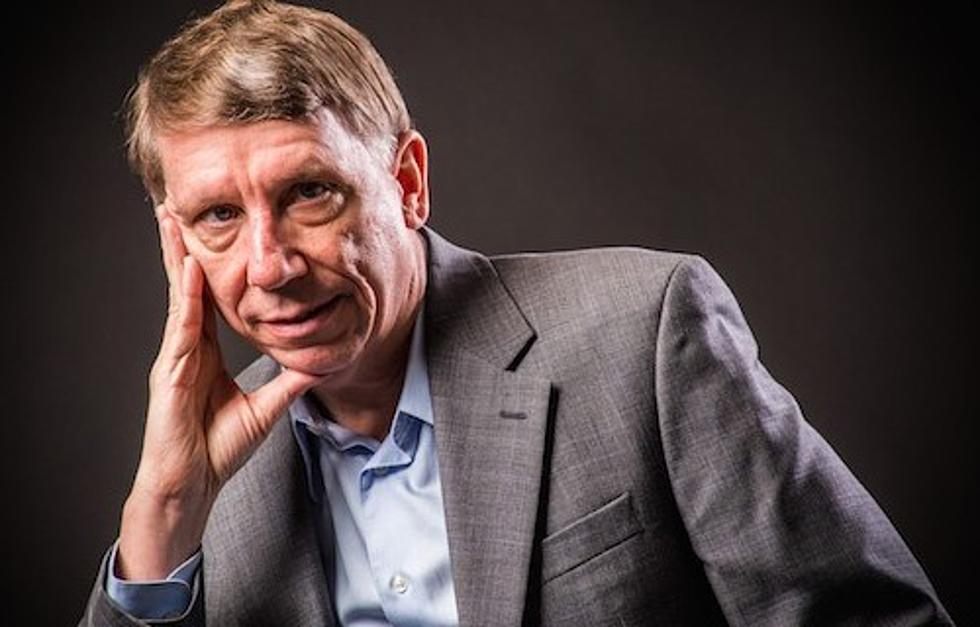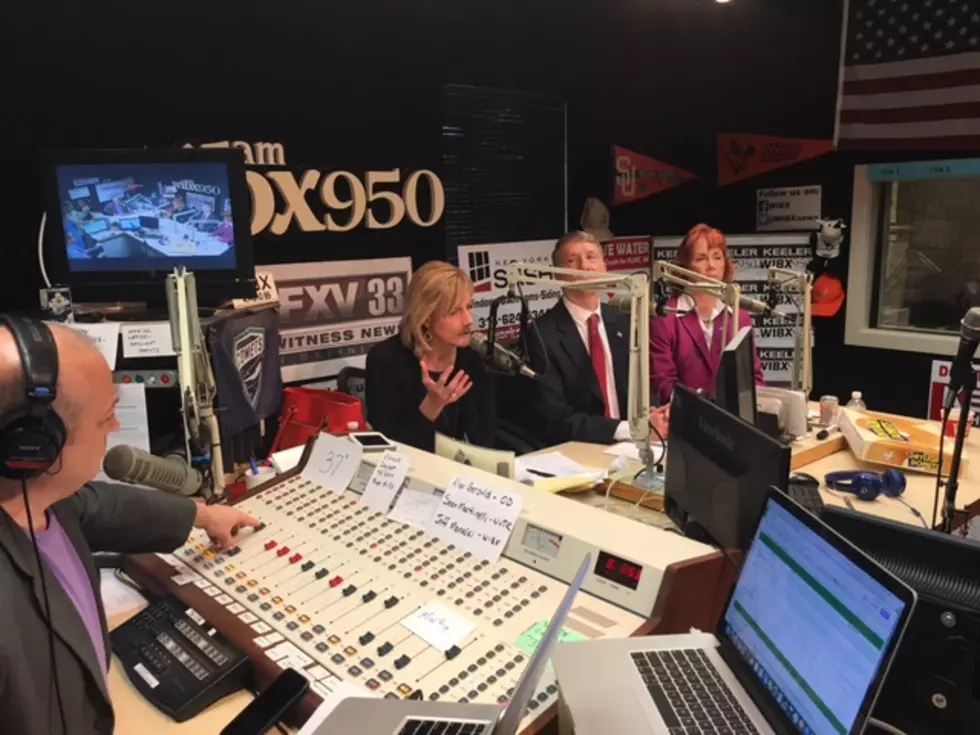
Babinec’s Plan for Open Primaries in New York Won’t Work
Opinion by Bill Keeler
Martin Babinec of Little Falls is a self-made multi-millionaire who's very smart. I just disagree with him on his plan to make New York and open primary state.
Babinec, who started the Upstate Jobs Party when he ran for Congress in the 22nd Congressional District, is working to promote open primaries in the state because he says it will increase voter participation. He feels voters are disenfranchised because often times races in the state are unopposed and a primary by one party basically decides the election because the controlling party candidate doesn't end up with an opponent. He feels Open Primaries would bring people back to the election process.
His plan would be to join some 20 states around the country which allow Open Primaries, permitting anyone to vote in a particular party's primary. And, it's up to the individual party to draw up rules that would allow for anyone to vote in their primary. Currently, 22 states participate in open primaries for at least one of their major parties in state and federal primaries. In New York, a person is required to be a registered voter who has joined the individual party in order to vote in that party primary.
In New York, a political party is defined as any political organization whose candidate for governor or president at the last preceding election garnered at least 130,000 votes, or 2 percent of all votes cast for the office, whichever is greater. As of 2020, New York recognized eight political parties including: Conservative, Democratic, Green, Independence, Libertarian, Republican, SAM, and Working Families parties. The parties set rules to select their candidate, and the outcome of the general election determines the winner.
Some of the current laws that govern our primaries date back to March of 1947 when then Governor Thomas Dewey signed into law the Wilson-Pakula Act that prohibited non-party members from winning the nomination of a party if they are not registered members of that party. A Wilson-Pakula waiver of these restrictions (which we see used from time to time currently) can be obtained if party leaders agree, thus allowing a non-party member to run on a certain party line. Wilson-Pakula was adopted in general because back in the 1940s, it was feared that outside political forces such as the Socialist Party, were winning the nomination on major party lines.
Babinec feels the fear of political infiltration is outdated and that closed primaries are discouraging people from voting. He says that as more and more people register as "independent" or without party affiliation, the number of people unable to vote in a primary has become enormous, and it's unfair for those people because they don't get to participate. For instance, in New York there are more independent or 3rd party registrants than there are Republicans. Babinec wants to allow all of those non-affiliated voters and those in minor parties to vote in the Republican or Democratic Primaries.
Babinec's plan for open primaries most likely won't come to fruition and it shouldn't. A party gets to select its candidate based on rules it sets up so that for the most part, that candidate represents its party values. If people disagree with the outcome, are disenfranchised or feel shut out, they can switch parties, become independent or non-party, they can run for office, volunteer for a particular candidate, or give a political contribution. Or, they can do what Buffalo Mayor Byron Brown did and put together a write-in campaign and ultimately beat the person who beat him in the primary. I know it was a long shot, but it actually happened just a few weeks ago. Or in Syracuse where Mayor Ben Walsh won as an independent just weeks ago back in November.
I also think the belief that voter turnout will increase and be sustained because of open primaries is a misnomer. Sooner or later when the "independent" doesn't get what they want from the primary they voted in, they'll just become disenfranchised all over again and stop voting. If you're an American who doesn't treasure your right to vote, I highly doubt voting in somebody else's primary is going to make you a dedicated voter long-term.

A Better Focus
Gerrymandering over the years has definitely hurt the election and political process and it's about to get even worse with redistricting at the end of the year. I feel Martin and the Upstate Jobs Party could better serve the region by carefully watching the upcoming process to expose the partisanship that's simply going to chop up our districts for political benefit. This creates a government that is selected by the fringes because the extremes determine the outcome of primaries. This garners the extremists on both sides the power to make or break a candidate. The result is that more extremist candidates are elected and in the "all or nothing" climate we live in currently, politicians fear that compromise will cost them their seat in future primaries. The result is the creation of a 2-party government that is so far separated in ideology, that nothing gets passed. We already can't get anything done in Washington and I'm afraid it's about to get even worse with the new "political" districts in 2022.
Utica's Chicken Riggies Dish Wasn't Invented in Utica? Say It Isn't So.
37 Photos from the 9/11 the Museum adjacent to One World Trade Center in New York City
More From WIBX 950









